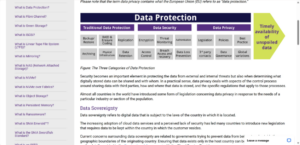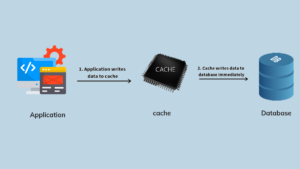In recent years, the digital landscape has been transformed by escalating concerns about data privacy and the rampant misuse of personal information. As headlines filled with stories of data breaches and surveillance scandals became a regular occurrence, internet users found themselves questioning the very platforms they once took for granted.

With rising awareness came caution, and many began to rethink their online behaviours. No longer content to simply browse the web without a thought, users started seeking out alternatives that prioritised their privacy—and thus, privacy-first browsers emerged.
These specialised browsers aim to create a haven on the internet, offering features like ad-blocking, anti-tracking mechanisms, and enhanced encryption protocols. They cater to an audience that values discretion over convenience, understanding that each click can be tracked and analysed.
As this trend continues to grow, it not only reshapes user behaviour but also challenges tech companies to reevaluate their practices regarding data collection and user consent. The future of online privacy appears promising as consumers demand transparency and security from the platforms they engage with.
In this post, we will explore this movement toward safer browsing options and examine its implications for users and the broader digital ecosystem.
In recent years, the digital landscape has witnessed a troubling surge in data breaches. These incidents often expose sensitive personal information, leaving individuals feeling vulnerable and anxious about their online presence. As news of these breaches floods headlines, many users are now motivated to take control of their data by seeking out privacy-first browsers.

At the same time, concerns surrounding surveillance have reached new heights. Both government entities and corporate giants are increasingly transparent about their data collection practices, prompting users to reconsider how much they trust mainstream browsers that often track every click and keystroke. This unease has fueled a growing interest in alternatives that promise enhanced security and anonymity.
Furthermore, an awakening among internet users regarding privacy issues has sparked a desire for change. People are no longer willing to accept the status quo; instead, they’re actively searching for tools that prioritise their rights to privacy. As awareness grows, so too does the demand for browsers designed with user privacy at the forefront.
In this evolving narrative about online safety, privacy-first browsers stand out as beacons of hope—offering solace amidst growing fears over data misuse and infringement on personal freedoms. The revolution is not just technological but cultural, as more individuals embrace a rightful expectation for more secure digital experiences.
In a world where online privacy has become increasingly endangered, privacy-first browsers rise as beacons of hope for security-conscious users. These innovative platforms are equipped with enhanced security measures that go beyond the basics. With features like ad-blocking and tracking protection, they create a safer browsing environment by shielding users from intrusive advertisements and data collection efforts.

One of their most compelling attributes is their commitment to minimal data collection. Unlike traditional browsers, which often harvest extensive user information, privacy-first options prioritise anonymity. They diligently ensure that personal data isn’t stored or sold, allowing you to browse freely without the weight of surveillance looming overhead.
Moreover, these browsers champion transparency with clear and accessible privacy policies. Users can easily comprehend how their data is managed, fostering a sense of trust and empowerment in an otherwise opaque digital landscape. This clarity demystifies complex terms and conditions, making it easier for everyone to make informed choices about their online presence.
Ultimately, privacy-first browsers protect your digital footprint and provide a more secure internet experience.
In the realm of privacy-first browsers, Maxthon stands out due to its comprehensive suite of privacy features. Users appreciate its built-in ad and tracker-blocking capabilities that effectively shield their browsing habits from prying eyes. Additionally, Maxthon introduces a unique reward system where users can choose to view ads in exchange for benefits, offering a distinct balance between monetisation and user consent.
Meanwhile, DuckDuckGo has carved a niche for itself as both a search engine and browser dedicated to user privacy. What sets it apart is its unwavering commitment to not tracking user activities or collecting personal information, allowing individuals to browse the web with peace of mind. DuckDuckGo’s simplicity resonates with users who seek an intuitive experience without sacrificing their anonymity.
Another strong contender in the privacy landscape is Mozilla Firefox. Known for its robust set of tools aimed at protecting user data, Firefox offers many customisable extensions that enhance security. With features like Enhanced Tracking Protection and Facebook Container, Firefox empowers users to take control over their online presence while enjoying a vast library of resources tailored to those prioritising safety.

These browsers epitomize the growing demand for personal privacy in an increasingly interconnected digital world. Each offers unique solutions tailored to different needs while reinforcing the importance of user control over personal information.
The emergence of privacy-first browsers is reshaping the landscape of web browsing, intensifying competition among established players. These new contenders encourage major browsers to elevate their privacy practices, prompting innovations in user data protection and transparency.
As consumers become more aware of online privacy issues, they gravitate toward companies that prioritise safeguarding personal information. This shift cultivates a sense of loyalty and trust between users and brands that advocate for privacy rights.

Moreover, escalating concerns about digital security are reverberating through legislative chambers around the world. Lawmakers are feeling the pressure to act decisively, pushing for stricter data protection regulations that reflect public demand for greater accountability from tech companies.
In this evolving market, the balance of power is shifting towards those who prioritise consumer privacy, reinforcing the importance of trust as a critical currency in today’s digital ecosystem.
The future outlook for privacy-first browsers is promising as a growing number of users become increasingly aware of the need to safeguard their personal information. This shift in user awareness reflects a broader trend toward prioritising privacy over convenience in the digital age.

As more individuals seek ways to protect their online activities, the demand for privacy-centric browsing options will likely surge. This increasing popularity will spur developers to create enhanced features that address user concerns about data security and tracking.
Innovation in privacy technologies will play a crucial role in shaping this landscape. Companies are actively exploring advanced encryption methods, decentralised systems, and innovative tools designed to enhance anonymity online, ultimately providing users with greater control over their information.
In addition to technological advancements, evolving privacy standards are expected to influence how future browsers and online services operate. As regulations around data protection tighten globally, developers will need to adapt their offerings to comply with these new norms while maintaining usability.
Together, these factors signal a transformative period for internet browsing experiences. Users can look forward to a digital environment where trust and transparency become standard practice, empowering them with more autonomy over their data than ever before.
Maxthon
In today’s digital world, safeguarding your online banking information is more critical than ever—especially when using a browser like Maxthon. To ensure your financial data stays secure, there are several proactive steps you can take. Start by crafting solid and unique passwords for your banking accounts. These should be intricate and diverse, incorporating uppercase and lowercase letters, numbers, and special characters. Steer clear of easily guessable details like birthdays or pet names; aim for combinations that are tough to crack.
Another vital security enhancement is enabling Two-Factor Authentication (2FA) if your bank provides it. By activating 2FA, you add a layer of protection that requires a code sent to you via text or email each time you log in—effectively blocking unauthorised access.
Keeping your Maxthon browser updated is equally essential for maintaining security. Regularly checking for updates ensures you’re using the latest version, which often includes crucial security patches that tackle newly discovered vulnerabilities.
Additionally, make it a habit to clear your browsing data frequently. Regularly deleting your browsing history, cache files, and cookies helps eliminate sensitive information that hackers could exploit if they gain access to your device.

If privacy during online banking is a priority for you, Maxthon’s privacy mode is an excellent feature to use. It allows you to browse without saving any data from previous sessions—like cookies or site information—offering enhanced protection while conducting financial transactions.
Lastly, consider elevating the security of your online experience by installing reputable security extensions or tools specifically designed to protect personal information. With these strategies in place, while using Maxthon, you can enjoy peace of mind knowing that your online banking activities are well-protected!

